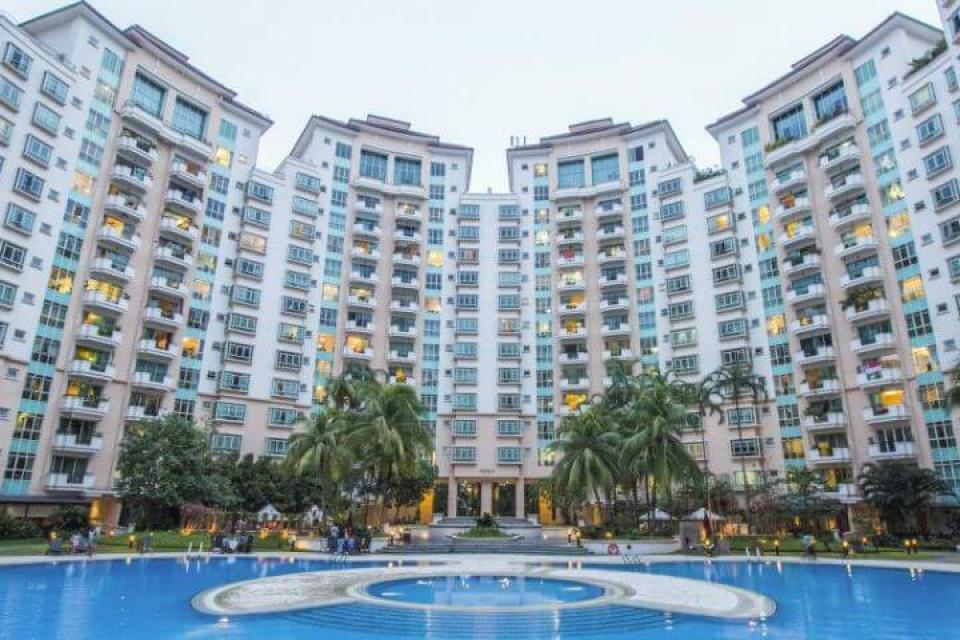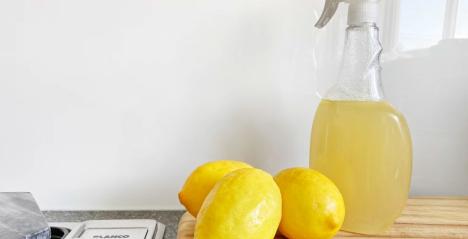This article has been originally published on Greyloft
Renting Property in Singapore
More and more of us are choosing to leave our home countries to live overseas, often tempted by the higher quality of life, promotion, or better schooling for our children. Regardless of the reasons, relocating can be difficult and charged with emotion. There is so much which is new – cultures, languages, climates – and so much more that it can be overwhelming. Even something that is usually straightforward, like renting property, can be daunting when faced with a whole host of new rules, terminology and a completely different system.
In this guide we want to demystify the process of renting property in Singapore.
Money, money, money
Let’s just get this out of the way first…Singapore is not the cheapest country on the planet. Housing can be expensive, and certainly may seem a lot more money than you’re used to paying at home. But remember, you’ll probably be paying a much lower rate of tax, so you housing costs might be a smaller portion of your income than they previously. In addition, many companies offer housing allowances to expats who are relocating with work, so you may find your housing costs are covered by your employer – a definite win!
Lots of factors affect what you can expect to pay per month, like proximity to an MRT, age of the condominium and location.
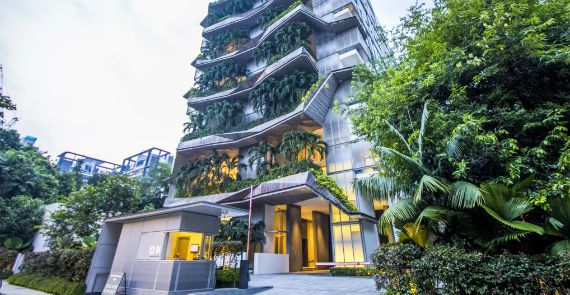
Understand the different property types available
Singapore has many seemingly different types of property – condos, walkups, landed houses, cluster homes – it can get confusing! In short, the differences are:
- Condo/condominium – private developments, ranging in size,where the separate units/apartments are individually owned but the amenities (like swimming pool, gym, BBQ pits) are shared.
- Walkup – any type of property which doesn’t have a lift! Usually found in smaller, older blocks which often come without facilities. Can also be used to refer to converted shophouses.
- Landed house – essentially a house or bungalow with some surrounding land or garden, and possibly a small swimming pool. Landed houses usually require you to be responsible for a lot of the maintenance.
- Cluster house – combine the privacy and exclusivity of landed house, with condo facilities like a maintained swimming pool and gym.
- Shophouse – heritage buildings which used to be shops on the ground floor, with housing above. Often now converted into wholly residential buildings.
- Black & white – distinctive heritage buildings, similar to landed properties, dating back to Singapore’s colonial times. Find out more here.
- HDB – this stands for Housing Development Board and is used as short-hand to describe any government housing in Singapore.
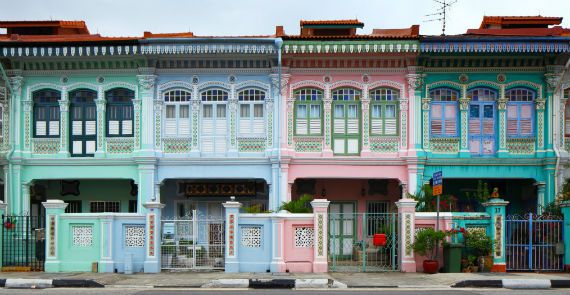
Do your research
Spend a bit of time finding out what areas you are interested in living in and what type of property you think you might want.
Would you prefer the hustle and bustle of living in Orchard, or do you want a more outdoors, active neighbourhood like the East Coast? Is proximity to a MRT station critical for you, or do you want a place where you can easily meet other families? Draw up a short list of the things which matter to you; it’ll help you a great deal when you start viewings.
Greyloft has a number of neighbourhood guides to help you, and you can also use our smart search feature to figure out what areas work best, based on your commute.

Get yourself a great agent
One of the most critical pieces in renting property in Singapore, is finding a great agent to represent you. Your agent is your representative and will work to get you the best deal. Whilst it can seem tempting to represent yourself or use the landlords agent, there are lots of pros to having your own agent, not least scheduling all the apartment viewings and negotiating your monthly rental.
Our Greyloft agents are handpicked by us; they know what it’s like to live overseas, and know the island inside-out.
Meet in-house Greyloft agents and get in touch.
Arrange viewings
Once you’ve got your super agent on board, they can start scheduling viewings for you. Your agent can coordinate with the different landlord’s agents and get appointments arranged at times that suit you. It’s not uncommon when you first arrive to dedicate two or three days to just look around apartments. This way you get to see a large number of apartments in quick succession.
Make sure you take photos and notes about each place, to jog your memory later or show to your partner/family.
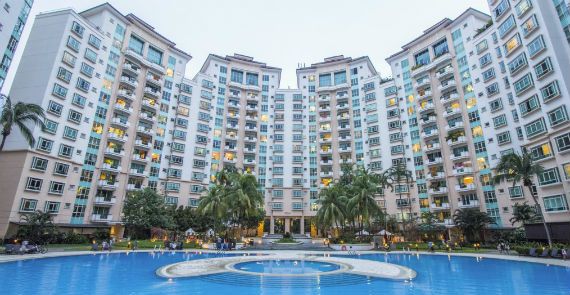
Negotiate the details
There’s plenty which can be negotiated in Singapore, above and beyond the monthly rental cost. A standard rental lease is usually 2 years (24 months). If you are happy to sign for this length, you can often negotiate a discount.
A standard lease inclusion for most expats is a ‘diplomatic clause’. This allows you to break your lease after a period of time, should you need to relocate away from Singapore.
Most properties come without furniture but with white goods (fridge, washing machine, tumble dryer – dishwashers aren’t that common but you can always ask!).
Letter of Intent
Once you’ve found a place you love, the next step is submitting your Letter of Intent (LoI). This indicates to your landlord your seriousness in proceeding to sign a contract. This also acts as your assurance that the landlord will not market the property to anyone else. A Letter of Intent is often accompanied by the payment of a ‘good faith’ deposit.
Sign the Tenancy Agreement
Once all the details are agreed, the Tenancy Agreement (TA) will be drawn up. Make sure you go through it closely and query anything you don’t understand or doesn’t seem right to you. The TA should include everyone’s contact details, details of what monies need to be paid and when, the duration of the tenancy, details of termination clauses and who is responsible for what maintenance costs.
You’ll probably be asked for a copy of your passport details, and or your Employment Pass (EP). The TA will be signed by you, the landlord, and your representing agents.
Security deposit & other payments
At the same time as you sign the TA, you’ll be required to pay your damage deposit and first month’s rent upfront. A standard security deposit for a 2-year lease is usually equivalent to 2 months rent, so it’s often a fairly large chunk of money! Singapore can be a little old-school at times, and you’ll often have to pay this money by cheque.
You’ll also need to pay Stamp Duty. This is roughly equivalent to 0.4% of the total rental amount (i.e. monthly rental x the number of months). Your agent will collect the payment, before transferring it to IRAS (the tax authority in Singapore). This is required for all rental contracts in Singapore.
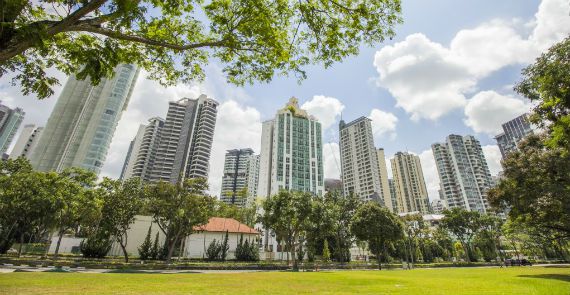
To protect your damage deposit we’d recommend drawing up a detailed state of condition report – take lots of photos and note down any defects that exist when you move in. There is no independent body who can settle deposit disputes, so it’s important to ensure you are protected, however nice your landlord might seem.
Greyloft offers this state of condition report as standard for all tenancies.
Relax, and enjoy your new home!
Then it’s finally time to move in, and start enjoying your new home! Greyloft is here for you throughout your tenancy, to advise on any disputes or answer any questions you have. Our team of experts are always on hand!
Start finding your perfect home with Greyloft!
Brought To You By Expat Choice

